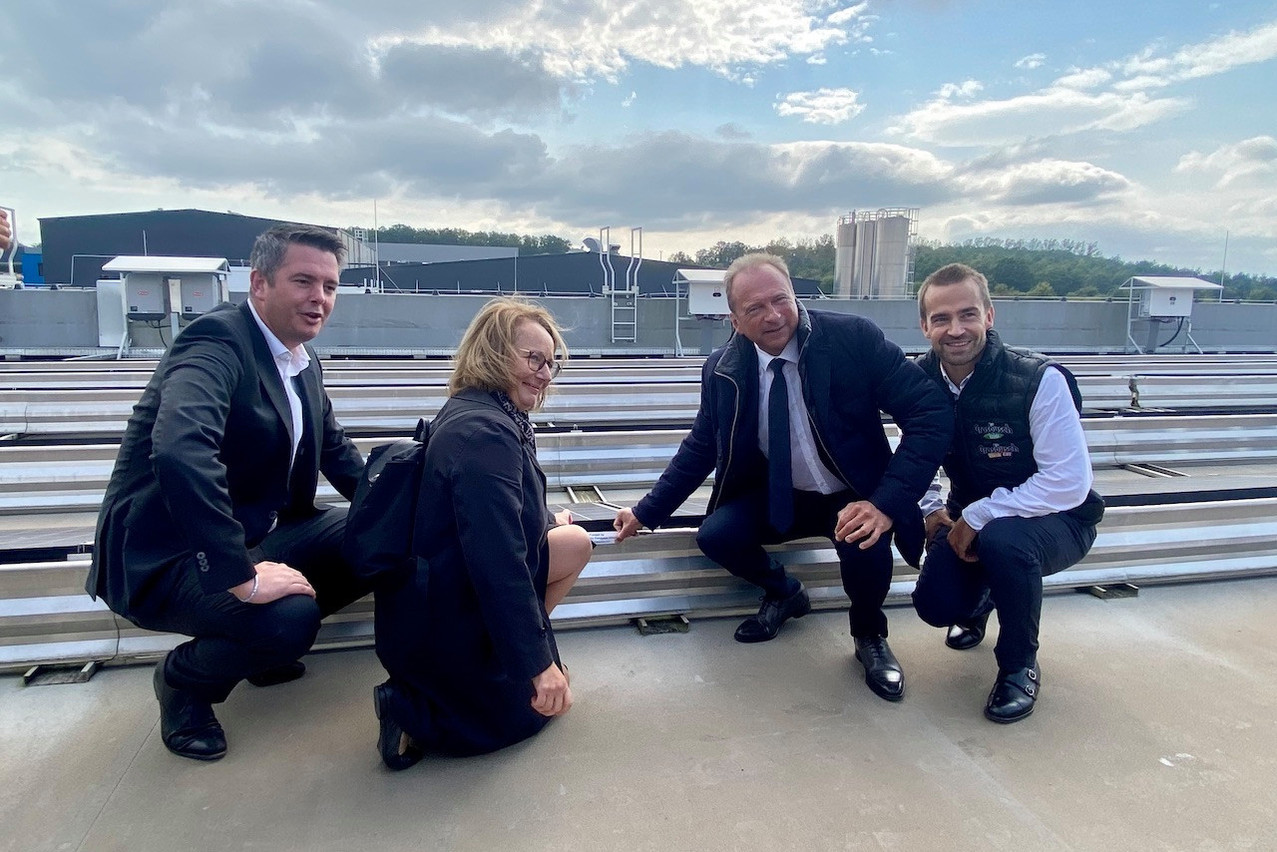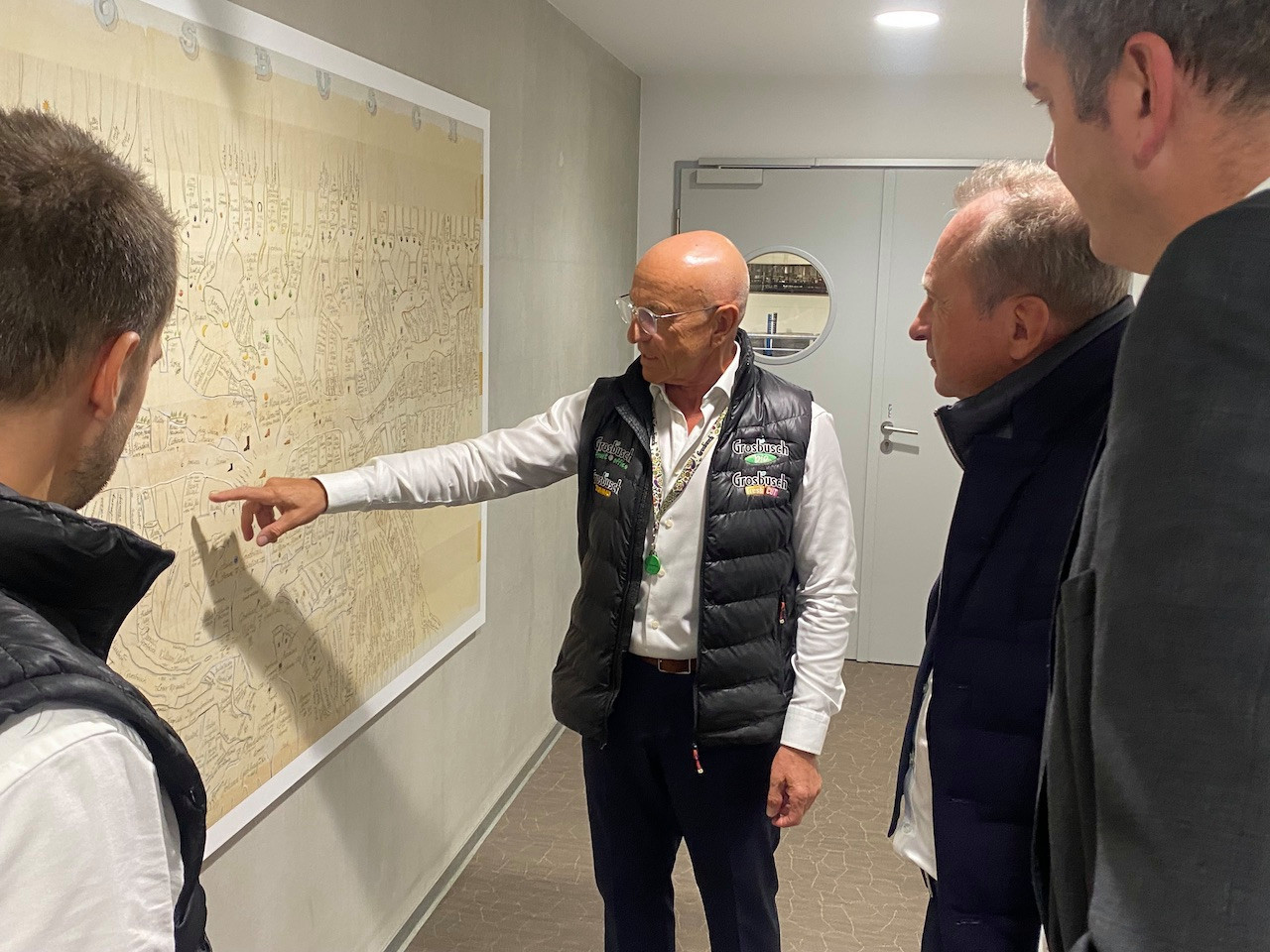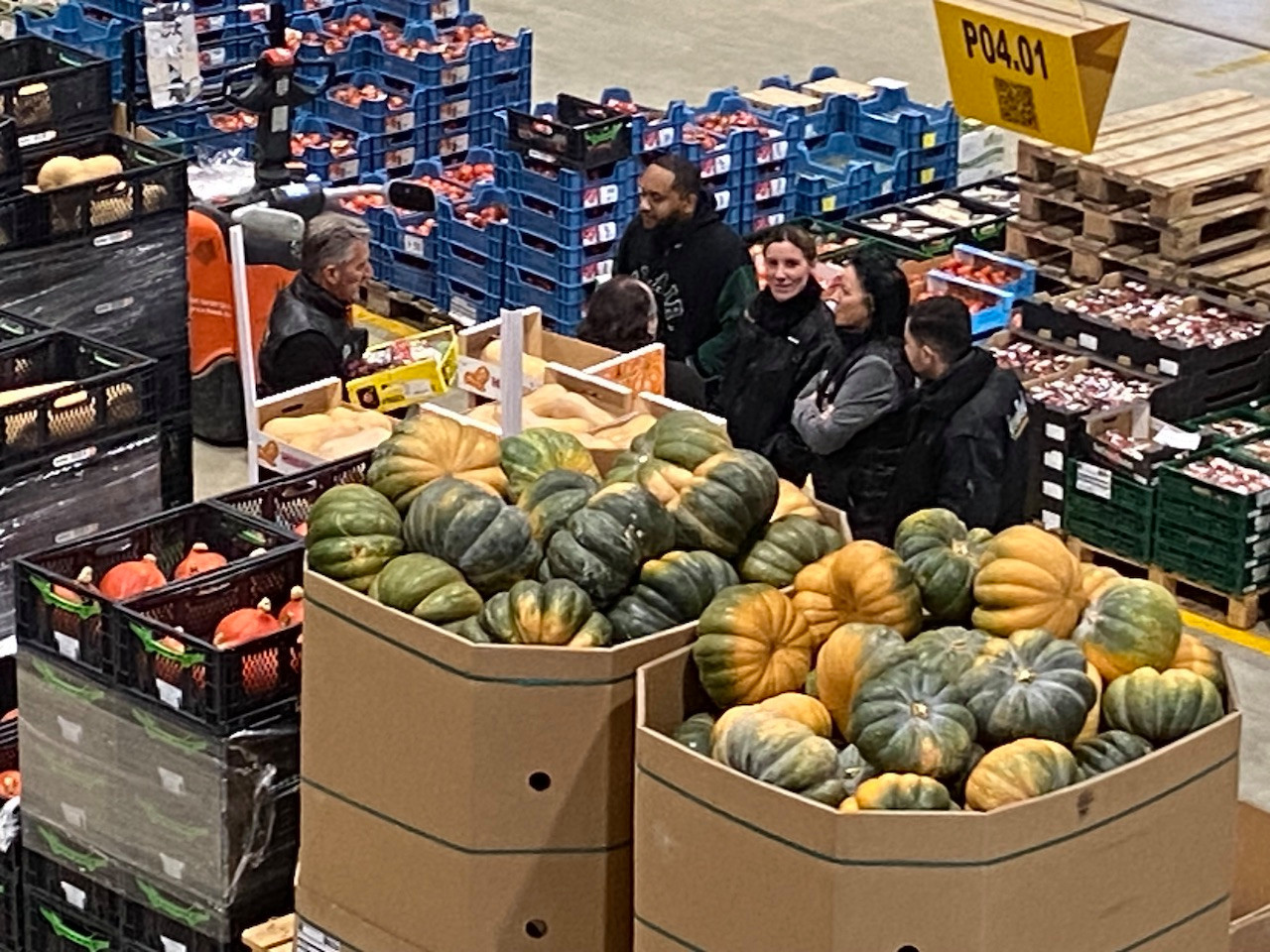The sun shunned the ceremony. The ministers and the director general of the European Commission did not. On the roof of the Grosbusch buildings in Ellange, 3,000 solar panels have been installed and commissioned in less than six months to produce 50% of the 1,000 MW that the family business consumes each year. "Our installations never stop," Goy Grosbusch, CEO of the food distributor, said on 17 September 2024. "365 days a year and 24 hours a day, we have to keep our products at the right temperature", which this morning was 6 to 8 degrees in the warehouse where fruit and vegetables are transported. Since the installation was commissioned, and a screen at the entrance gives the results in real time, the company has been consuming between 65% and 80% of the electricity it produces, and is already on track to meet its targets.
In the company's auditorium, the young manager said how proud he is to be contributing to the European plans. "Admittedly, we are making a small contribution, but we are proud to be able to do so," he said in front of the two ministers, for the economy and energy, (DP), and for finance, (CSV), and the director general of the European Commission's Recovery and Resilience Task Force, Céline Gauer, as well as representatives of Socom (which managed the installation) and BGL BNP Paribas (which helped with the financing). The €1m initiative comes on top of the use of cellulose packaging and the switch to electric power for 40 of the group's vehicles by the end of 2025.
The panels were sourced from the Chinese company Jinko, present in Luxembourg from 2011 to 2018. The company rakes in 50% of the subsidies from the Chinese state, more than €130m, according to our calculations, in 2022. Interviewed in the afternoon as part of the annual event organised by the European Commission at Neumünster Abbey, Gauer invited us to consider other factors. "The vast majority of the sums spent go to European companies and help to launch or even relaunch the photovoltaic panel production sector, and a new European regulation will look at companies that benefit from foreign subsidies in public tenders.”
"We have the greenest plan in Europe", said the finance minister in the morning, pointing out not only that his envelope under the Luxembourg Recovery and Resilience Plan - now including the new REPowerEU chapter - had risen from €83m to €241m, but also that ten reforms and 13 investments would give Luxembourg a new boost, in the areas of residential energy renovation, solar panels, sustainable mobility and sustainable biogas.
In front of the representative of the European Commission, the minister reminded her of the fraud at Caritas without mentioning it, the better to say that Luxembourg will monitor the proper use of European funds. "It's important for all countries, but it's particularly important for us", he said.
The Recovery and Resilience Facility (RRF) was set up three years ago, and the European Commission has disbursed more than €265bn to member states. Time is running out: the mechanism, which combines structural reforms and investments at member state level and in collaboration with the European Commission, has €648bn in dry powder to spend between now and 2026.
Read the original French-language version of this report




